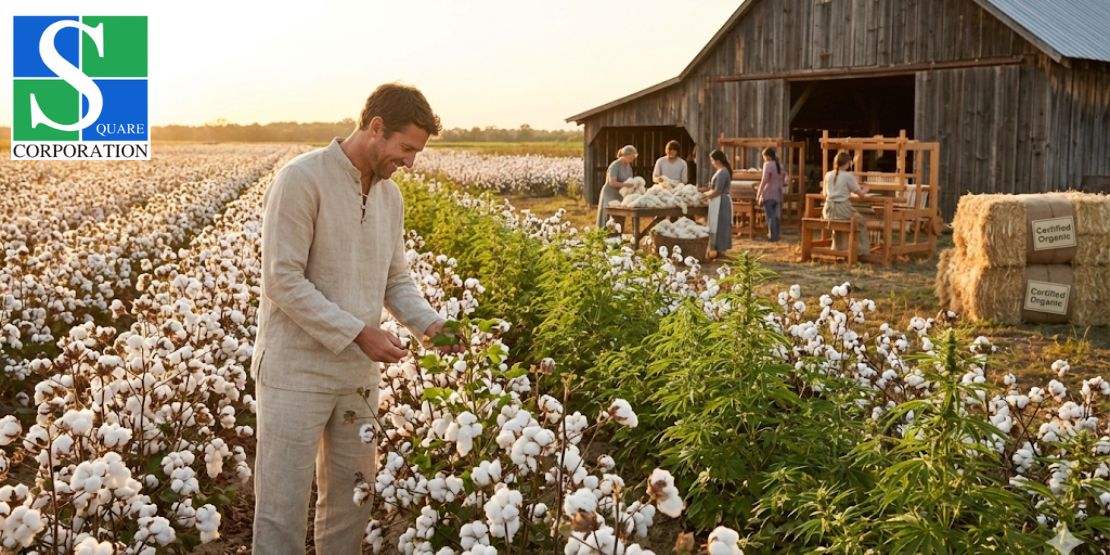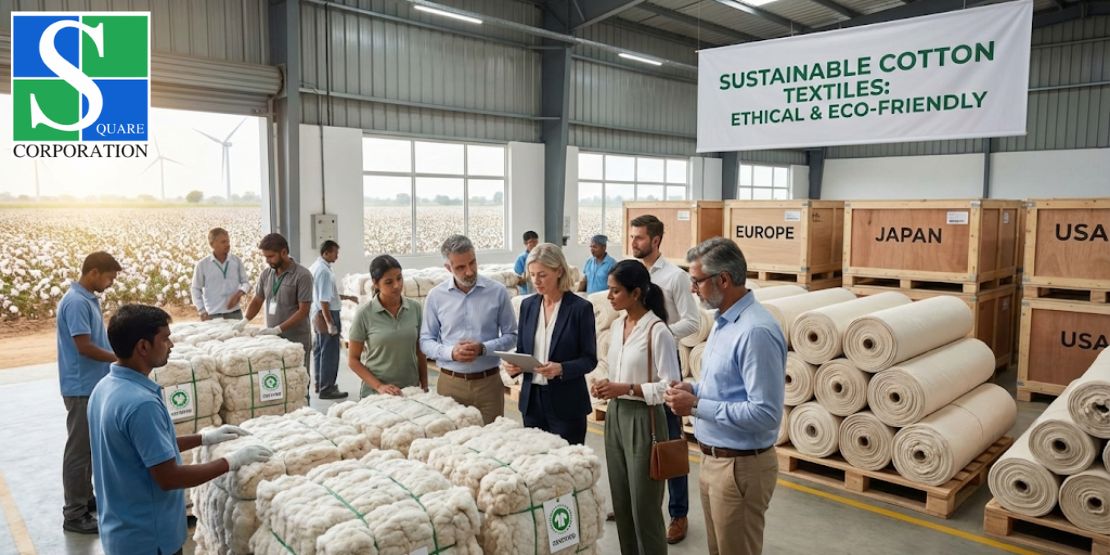10 February, 2026 | by Admin
How to Overcoming Shortage in Organic Cotton Supply
10 June, 2025 | by Admin
With increased demand for sustainable fashion, organic cotton is increasingly becoming a must-have for green brands. Yet, supply lags behind due to constrained certified land, reduced yields, climate disturbances, and high costs of production. In order to close the gap and make sure that everything is sustainable, companies need to find creative solutions in every segment of their supply chain. In order to have a stable supply, one should reach out to organic cotton manufacturers in India.
With the increasing demand for sustainable fashion, organic cotton is increasingly being appreciated. Yet its supply is most often inadequate owing to scarce land available for farming, high cultivation expenses, and unpredictable climatic patterns. These shortages have to be bridged by intelligent methods by companies and stakeholders. In this article, we will give you a list of methods to bridge the shortage in organic cotton supply.
Hints For Overcoming Organic Cotton Supply Shortages
Strengthen farmer relationships
Build directly with farmers through long-term contracts and form fair trade alliances based on mutually equitable relationships. Offer intensive training and support that focuses on organic farming practices, allowing farmers to raise their yields while greatly minimizing crop loss risk. Furthermore, it offers access to financing and crop insurance, especially to organic cotton farmers, to ensure a seamless shift from conventional to sustainable organic agriculture. Furthermore, if you want to manufacture the best finished products for your customers, a spinning mill in Gujarat can help you do so.
Invest in regenerative agriculture
Adopt regenerative agricultural practices—e.g., crop rotation, composting, and organic pest management—to measurably increase soil health and improve cotton production. These methods have been shown to revolutionize agricultural results and promote a secure future for agriculture. Promote and demand transition programs to assist conventional cotton producers with their transition to certified organic, thus increasing the world’s supply base and providing a sustainable future for the industry.
Support innovation and R&D
Invest in higher-quality seeds that not only have resistance to pests but also have improved resistance against drought, which can make the crop more sustainable. Also, invest in cutting-edge technology that can simplify organic certification procedures and monitor soil health parameters. This will make it easier to comply, reduce the burden on farmers, and promote a healthier agri-ecosystem.
Educate consumers
Transparency regarding the intricacies of material sourcing is important, especially for cotton. Through furnishing clear information regarding these complications, we can stress the merits of opting for blended or transitional cotton. This can not only help bridge the distance to full organic certification but also encourage consumers to be responsible and sustainable in their choices. Even if a product is not completely made from organic cotton, informing consumers with information enables them to choose those that are even more planet-friendly and helpful towards the cause of overall sustainability.
Diversify sourcing regions
In order to cultivate resilience in sourcing strategies, it is important to prevent dependence on a single nation or region. By diversifying the sources of organic cotton produced from various areas, like India’s green fields and other parts of the world, organizations can successfully counter risks due to unstable weather patterns, political unrest, or regional shortage. This planning also safeguards supply chains and fosters a healthy and sustainable sourcing system.
Solving the urgent shortage of organic cotton is not about seeking fast fixes; it is about building strong, ethical, and scalable systems that will last the distance. Investing in farmers’ livelihoods, increasing transparency along supply chains, and adopting flexibility in design processes allows fashion to turn sustainability from a passing fad into an actual, enduring reality. This holistic approach will foster a more responsible and conscientious sector, benefiting both people and the planet.
Related Posts
05 February, 2026 | by Admin
How to Compare Fabric Samples Effectively...
30 January, 2026 | by Admin







